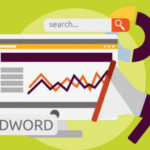
Pagination plays a crucial role in structuring content across websites, especially for ecommerce stores, blogs, and news portals. Yet, many site owners overlook how pagination impacts SEO. If your product pages or blog posts are struggling to appear in search results, improper pagination might be the reason.
In this guide, we’ll break down the importance of pagination, its SEO implications in 2025, and best practices for implementation.
What is Pagination?
Pagination is the process of dividing large amounts of content into multiple pages while maintaining a structured and user-friendly experience. It’s commonly used in:
- Ecommerce product listings – Displaying multiple pages of products in a category.
- Blog archives and news feeds – Organizing older articles into separate pages.
- Comment sections – Breaking up large volumes of user-generated comments.
By improving user experience and managing page load speeds, pagination helps both users and search engines navigate your site effectively.
Why is Pagination Important for SEO?
- Indexing and Crawl Efficiency
Without proper pagination, search engines may struggle to discover deeply buried content, leading to poor indexing. Pagination links create a structured path for crawlers, ensuring all pages remain accessible. - Internal Linking and Site Architecture
Pagination strengthens internal linking by connecting related content. Google prioritizes pages that are well-integrated into a website’s architecture, reducing the risk of orphaned pages. - Avoiding Duplicate Content Issues
Incorrect pagination can create duplicate content problems, confusing search engines and leading to indexation issues. Proper implementation ensures that paginated URLs are treated as unique pages.
Google’s Deprecation of rel=prev/next
Previously, Google used rel=prev/next to understand paginated content. However, in 2019, Google confirmed that these tags are no longer used. Instead, Google now relies on internal links and site structure to determine relationships between paginated pages.
Best practice: You don’t need to use rel=prev/next anymore, but you should ensure paginated pages have logical internal links and follow a clear hierarchy.
Is Infinite Scroll a Better Alternative?
Many websites have adopted infinite scroll or “Load More” buttons instead of traditional pagination. While these features improve user experience, they pose SEO challenges:
- Search engines don’t interact with pages like human users do—crawlers may not scroll endlessly.
- If JavaScript dynamically loads new content, search engines might miss important pages.
- Pagination remains a more reliable way for search engines to discover and index content.
Solution: If using infinite scroll, ensure paginated URLs exist as a backup and are crawlable.
How to Optimize Pagination for SEO in 2025
- Ensure paginated pages are indexable – Don’t block them in robots.txt or use canonical tags that consolidate all pages into one.
- Use self-referencing canonicals – Each paginated page should have a self-referencing canonical URL (e.g., /page/2/ should have a canonical tag pointing to itself).
- Maintain strong internal linking – Link to deeper paginated pages from your primary pages to improve discovery.
- Use meaningful URLs – Avoid vague parameters like ?p=2 and instead use /page/2/ for better readability.
- Monitor crawl efficiency – Use Google Search Console to check if paginated pages are being crawled and indexed properly.
Pagination continues to be essential in 2025 for managing large content structures. While Google has evolved past rel=prev/next, proper internal linking, indexing, and structured URLs ensure your paginated content remains visible in search results.
At SEO Guru NYC, we specialize in optimizing websites for search engines, ensuring seamless indexing, efficient crawling, and improved rankings. Whether it’s implementing best practices for pagination, refining internal linking, or optimizing JavaScript for SEO, our New York-based agency helps businesses navigate the ever-changing digital landscape. If you’re looking to enhance your site’s visibility and technical SEO, partner with us today!
Visit our website to elevate your SEO strategy.




